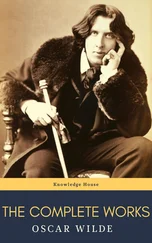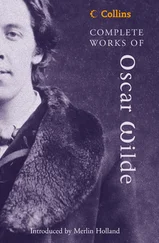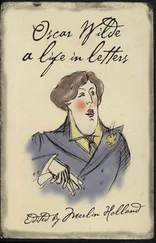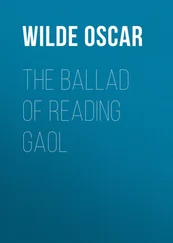Polybius ends this great diapason of Greek thought. When the Philosophy of history appears next, as in Plutarch’s tract on ‘Why God’s anger is delayed, ’ the pendulum of thought had swung back to where it began. His theory was introduced to the Romans under the cultured stule of Cicero, and was welcomed by them as the philosophical panegyric of their state. The last notice of it in Latin literature is in the pages of Tacitus, who alludes to the stable polity formed out of these elements as a constitution easier to commend than to produce and in no case lasting. Yet Polybius had seen the future with no uncertain eye, and had prophesied the rise of the Empire from the unbalanced power of the ochlocracy fifty years and more before there was joy in the Julian household over the birth of that boy who, borne to power as the champion of the people, died wearing the purple of a king.
No attitude of historical criticism is more important than the means by which the ancients attained to the philosophy of history. The principle of heredity can be exemplified in literature as well as in organic life: Aristotle, Plato and Polybius are the lineal ancestors of Fichte and Hegel, of Vico and Cousin, of Montesquieu and Tocqueville.
As my aim is not to give an account of historians but to point out those great thinkers whose methods have furthered the advance of this spirit of historical criticism, I shall pass over those annalists and chroniclers who intervened between Thucydides and Polybius. Yet perhaps it may serve to throw new light on the real nature of this spirit and its intimate connection with all other forms of advanced thought if I give some estimate of the character and rise of those many influences prejudicial to the scientific study of history which cause such a wide gap between these two historians.
Foremost among these is the growing influence of rhetoric and the Isocratean school, which seems to have regarded history as an arena for the display of either pathos or paradoxes, not a scientific investigation into laws.
The new age is the age of style. The same spirit of exclusive attention to form which made Euripides often, like Swinburne, prefer music to meaning and melody to morality, which gave to the later Greek statues that refined effeminacy, that overstrained gracefulness of attitude, was felt in the sphere of history. The rules laid down for historical composition are those relating to the aesthetic value of digressions, the legality of employing more than one metaphor in the same sentence, and the like; and historians are ranked not by their power of estimating evidence but by the goodness of the Greek they write.
I must note also the important influence on literature exercised by Alexander the Great; for while his travels encouraged the more accurate research of geography, the very splendour of his achievements seems to have brought history again into the sphere of romance. The appearance of all great men in the world is followed invariably by the rise of that mythopoeic spirit and that tendency to look for the marvellous, which is so fatal to true historical criticism. An Alexander, a Napoleon, a Francis of Assisi and a Mahomet are thought to be outside the limiting conditions of rational law, just as comets were supposed to be not very long ago. While the founding of that city of Alexandria, in which Western and Eastern thought met with such strange results to both, diverted the critical tendencies of the Greek spirit into questions of grammar, philology and the like, the narrow artificial atmosphere of that University town (as we may call it) was fatal to the development of that independent and speculative spirit of research which strikes out new methods of inquiry, of which historical criticism is one.
The Alexandrines combined a great love of learning with an ignorance of the true principles of research, an enthusiastic spirit for accumulating materials with a wonderful incapacity to use them. Not among the hot sands of Egypt, or the Sophists of Athens, but from the very heart of Greece rises the man of genius on whose influence in the evolution of the philosophy of history I have a short time ago dwelt. Born in the serene and pure air of the clear uplands of Arcadia, Polybius may be said to reproduce in his work the character of the place which gave him birth. For, of all the historians – I do not say of antiquity but of all time – none is more rationalistic than he, none more free from any belief in the ‘visions and omens, the monstrous legends, the grovelling superstitions and unmanly craving for the supernatural’ (  ) 1which he is compelled to notice himself as the characteristics of some of the historians who preceded him. Fortunate in the land which bore him, he was no less blessed in the wondrous time of his birth. For, representing in himself the spiritual supremacy of the Greek intellect and allied in bonds of chivalrous friendship to the world-conqueror of his day, he seems led as it were by the hand of Fate ‘to comprehend,’ as has been said, ‘more clearly than the Romans themselves the historical position of Rome,’ and to discern with greater insight than all other men could those two great resultants of ancient civilisation, the material empire of the city of the seven hills, and the intellectual sovereignty of Hellas.
) 1which he is compelled to notice himself as the characteristics of some of the historians who preceded him. Fortunate in the land which bore him, he was no less blessed in the wondrous time of his birth. For, representing in himself the spiritual supremacy of the Greek intellect and allied in bonds of chivalrous friendship to the world-conqueror of his day, he seems led as it were by the hand of Fate ‘to comprehend,’ as has been said, ‘more clearly than the Romans themselves the historical position of Rome,’ and to discern with greater insight than all other men could those two great resultants of ancient civilisation, the material empire of the city of the seven hills, and the intellectual sovereignty of Hellas.
Before his own day, he says, 1the events of the world were unconnected and separate and the histories confined to particular countries. Now, for the first time, the universal empire of the Romans rendered a universal history possible. 2This, then, is the august motive of his work: to trace the gradual rise of this Italian city from the day when the first legion crossed the narrow strait of Messina and landed on the fertile fields of Sicily to the time when Corinth in the East and Carthage in the West fell before the resistless wave of empire and the eagles of Rome passed on the wings of universal victory from Calpè and the Pillars of Hercules to Syria and the Nile. At the same time he recognised that the scheme of Rome’s empire was worked out under the aegis of God’s will 3. For, as one of the Middle Age scribes most truly says, the  4of Polybius is that power which we Christians call God; the second aim, as one may call it, of his history is to point out the rational and human and natural causes which brought this result, distinguishing, as we should say, between God’s mediate and immediate government of the world.
4of Polybius is that power which we Christians call God; the second aim, as one may call it, of his history is to point out the rational and human and natural causes which brought this result, distinguishing, as we should say, between God’s mediate and immediate government of the world.
With any direct intervention of God in the normal development of Man, he will have nothing to do: still less with any idea of chance as a factor in the phenomena of life. Chance and miracles, he says, are mere expressions for our ignorance of rational causes. The spirit of rationalism which we recognised in Herodotus as a vague uncertain attitude and which appears in Thucydides as a consistent attitude of mind never argued about or even explained, is by Polybius analysed and formulated as the great instrument of historical research.
Herodotus, while believing on principle in the supernatural, yet was sceptical at times. Thucydides simply ignored the supernatural. He did not discuss it, but he annihilated it by explaining history without it. Polybius enters at length into the whole question and explains its origin and the method of treating it. Herodotus would have believed in Scipio’s dream. Thucydides would have ignored it entirely. Polybius explains it. He is the culmination of the rational progression of Dialectic. ‘Nothing,’ he says, ‘shows a foolish mind more than the attempt to account for any phenomena on the principle of chance or supernatural intervention. History is a search for rational causes, and there is nothing in the world – even those phenomena which seem to us the most remote from law and improbable – which is not the logical and inevitable result of certain rational antecedents.’
Читать дальше
Конец ознакомительного отрывка
Купить книгу

 ) 1which he is compelled to notice himself as the characteristics of some of the historians who preceded him. Fortunate in the land which bore him, he was no less blessed in the wondrous time of his birth. For, representing in himself the spiritual supremacy of the Greek intellect and allied in bonds of chivalrous friendship to the world-conqueror of his day, he seems led as it were by the hand of Fate ‘to comprehend,’ as has been said, ‘more clearly than the Romans themselves the historical position of Rome,’ and to discern with greater insight than all other men could those two great resultants of ancient civilisation, the material empire of the city of the seven hills, and the intellectual sovereignty of Hellas.
) 1which he is compelled to notice himself as the characteristics of some of the historians who preceded him. Fortunate in the land which bore him, he was no less blessed in the wondrous time of his birth. For, representing in himself the spiritual supremacy of the Greek intellect and allied in bonds of chivalrous friendship to the world-conqueror of his day, he seems led as it were by the hand of Fate ‘to comprehend,’ as has been said, ‘more clearly than the Romans themselves the historical position of Rome,’ and to discern with greater insight than all other men could those two great resultants of ancient civilisation, the material empire of the city of the seven hills, and the intellectual sovereignty of Hellas. 4of Polybius is that power which we Christians call God; the second aim, as one may call it, of his history is to point out the rational and human and natural causes which brought this result, distinguishing, as we should say, between God’s mediate and immediate government of the world.
4of Polybius is that power which we Christians call God; the second aim, as one may call it, of his history is to point out the rational and human and natural causes which brought this result, distinguishing, as we should say, between God’s mediate and immediate government of the world.










